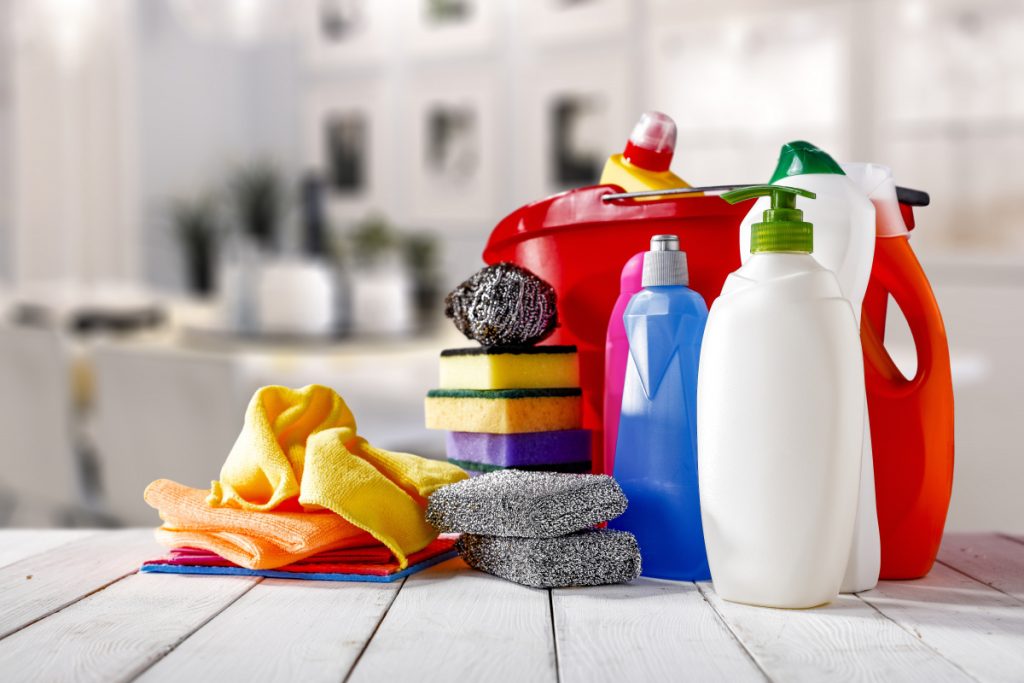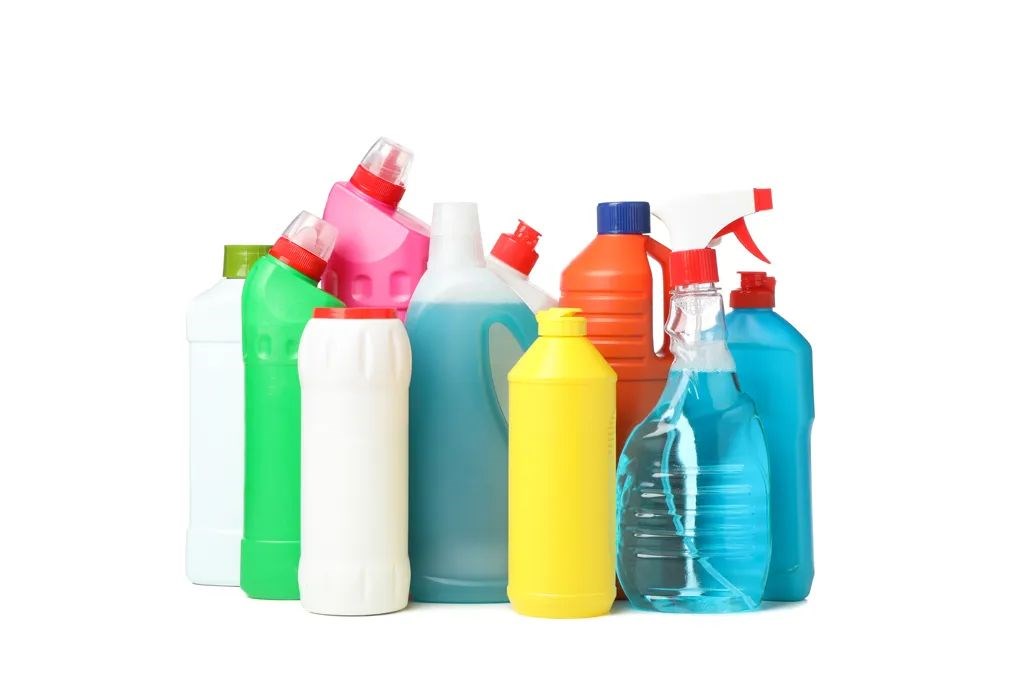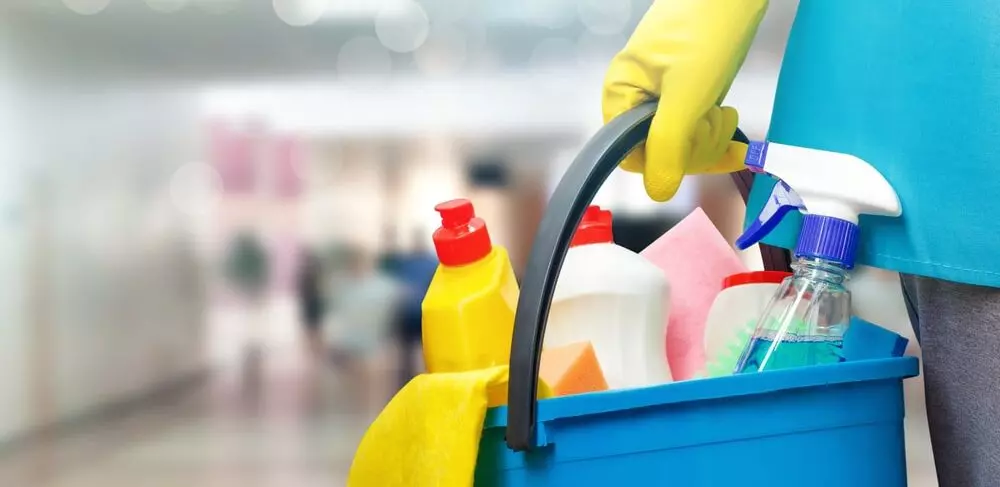
Choosing The Right Cleaning Supplies For Your Business – A Buyer’s Guide
Maintaining clean business premises is not just about appearance—it enhances employee well-being, creates a professional environment that delights customers, and...

Get 20€ off on your first order!
Are you looking for effective ways to ensure food safety and maintain compliance with industry standards? In the food industry, cleanliness and compliance are essential, but choosing the right cleaning products can be overwhelming.
This guide will provide you with the knowledge to select and use industrial cleansers effectively, addressing your cleaning needs while ensuring safety and compliance. By the end, you’ll know which products are best for your facility, how to use them efficiently, and how to maintain a clean, productive environment.
With our expertise, we’ll also show you how to implement a routine that meets all regulations, while offering solutions for any future challenges that may arise. Keep reading to find the right cleaning solutions for your facility.
For a broader perspective, explore our comprehensive buyer’s guide to industrial cleansers.

Selecting the appropriate type of industrial cleaning agent hinges on understanding your facility’s specific cleaning requirements. A comparison chart outlining uses, benefits, and examples of each type could streamline the decision-making process. Below are the common types and their applications:
Degreasers are highly effective in cleaning and managing oil and fat residues often found in kitchens and processing areas. They ensure non-slip surfaces and compliance with safety standards. Explore our range of degreasers.
Surface cleaners are designed for food contact surfaces, providing effective cleaning without leaving harmful residues. For more information, read Surface Cleaners: Everything You Need to Know.
These specialized products reduce static buildup, crucial in areas handling powdered or granulated food items. Learn how to choose the right product in Antistatic Cleaners: Selecting the Right Cleaning Products.
Food-grade industrial cleansers are tailored to meet the unique needs of the food industry. When evaluating products, consider the following features:
Visit our industrial cleansers category for products that meet these criteria.
Following European food safety regulations helps ensure smooth operations in the food industry. Refer to Regulation (EC) No 852/2004 and HACCP principles for detailed guidance on maintaining standards. Standards such as the European Commission’s Regulation No 852/2004 offer comprehensive guidelines for safe food handling and production. Facilities are encouraged to:
Selecting the right product involves considering your facility’s unique needs. Follow these tips:
Explore our buying guide to industrial cleansers for further insights.
A well-structured cleaning routine ensures thorough hygiene:
While industrial cleansers are the backbone of food industry cleaning, complementary products enhance results:
We hope this guide has provided valuable insights into selecting the right industrial cleansers for your food facility, from understanding key product features to meeting industry standards. Whether you’re ensuring food safety in production lines or managing hygiene in food contact areas, we’re here to support your needs.
For all your cleaning needs, visit our industrial cleansers category or browse related buying guides.
Have questions or need assistance in choosing the right cleanser for your facility? Don’t hesitate to reach out—we’re always here to help ensure your operations are safe, efficient, and compliant.
– The Droppe Team
Food-grade cleansers are non-toxic, safe for food contact surfaces, and comply with industry regulations to prevent contamination.
No, regular cleaning products may contain harmful chemicals. Always use industrial cleansers specifically designed for food safety.
Cleaning frequency depends on your operation, but a regular cleaning schedule, at least once a day, is recommended to ensure hygiene.
Most industrial cleansers are safe for a variety of surfaces, but always check product compatibility with specific materials like stainless steel or plastic.
Degreasers are designed to break down oils and fats, while surface cleaners focus on removing general dirt, residues, and microbes from food contact areas.
Thank you! You've signed up for our newsletter.



















Maintaining clean business premises is not just about appearance—it enhances employee well-being, creates a professional environment that delights customers, and...

Not sure which cleaner is best for your floors? This article will provide you with all the information you need...

Choosing between solvent-based and water-based industrial cleansers can be tricky, but we’re here to make it easier. In this article,...

Maintaining clean business premises is not just about appearance—it enhances employee well-being, creates a professional environment that delights customers, and...

Not sure which cleaner is best for your floors? This article will provide you with all the information you need...

Choosing between solvent-based and water-based industrial cleansers can be tricky, but we’re here to make it easier. In this article,...
Get 10€ off on your first order!
Save 30% by buying directly from brands, and get an extra 10€ off orders over €100
Save 30% by buying directly form brands, and get an extra 10€ off orders over €100